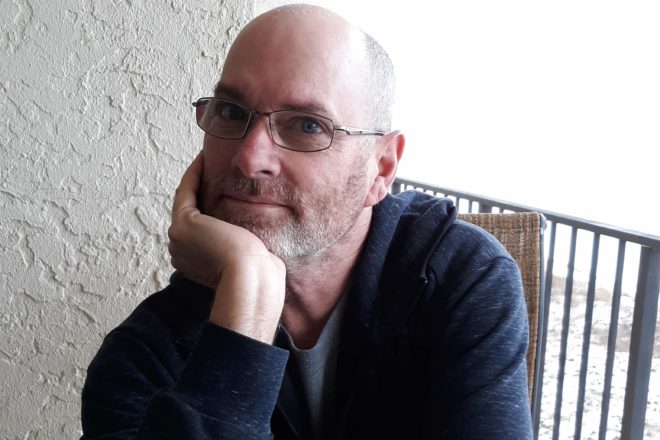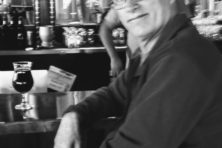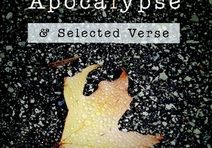Peninsula Poetry: Mike Orlock
- Share
- Tweet
- Pin
- Share

Mike Orlock is a retired high school teacher and coach. He and his wife, Liz, retired to Sturgeon Bay in 2008. He enjoys travel, reading, writing, films and spending time with his two children and five grandchildren.
From 1989 to 2001, Orlock wrote film reviews for the Reporter-Progress newspapers in suburban Chicago and was a contributing member of the Chicago Film Critics Association. His short fiction has appeared in TriQuarterly, the literary journal of Northwestern University; and Another Chicago Magazine. He has twice been honored with Illinois Arts Council Awards for his short fiction. His poetry has appeared on the Your Daily Poem website, in the Wisconsin Fellowship of Poets’ (WFOP) yearly calendars, Verse Wisconsin, the Los Angeles Times, the Blue Heron Review, the Peninsula Pulse and other venues.
In 2014, Orlock won the Wisconsin Writers Association’s Jade Ring Award in the Free Verse category; and in 2016, he won the WFOP Muse Prize. He is a member of Door County’s Unabridged poetry group. Orlock has released two books of poetry this year: You Can Get Here from There: Poems of Door County & Other Places and Poetry Apocalypse & Selected Verse. He describes his poetry as “light verse with a twist of irony.”
Adventures in American Poetry 101
by Mike Orlock
When my students needed him most,
Walt Whitman was nowhere to be found.
He’d resided for the longest time
in the section on “Post-Civil War Literature,”
tucked comfortably between selected poems
of Emily Dickinson and three excerpts from
the vast literary canon of Mark Twain
(carefully expurgated to reflect racial sensitivities
in these troubled times); but when students were asked
to turn to him for an example of vernacular
free verse, all they found was space
empty as the American plains in those days
where Whitman, shaggy as any buffalo, roamed.
Perhaps he’d tired of loafing and lazing
his legacy away. After all, a man in his boots,
so used to wandering, had to feel impatient
that a new world so alive with song
had relegated him to the silence of stuffy libraries
and textbooks thick as headstones.
There was grass out there to be contemplated
and hawks aloft to admire. Still,
when I directed my students to the designated page,
where together I intended to Sing the Body
Electric with them, eleventh graders
already juiced on cafeteria junk food,
I never expected Whitman would have ditched my class
(along with two chronic truants whom I hadn’t seen
in weeks) by abandoning the hallowed space
that Houghton Mifflin Harcourt had reserved especially for him.
“Where’s Whitman?” I asked aloud in disbelief.
What does one do when an American poet goes missing?
Especially one as unpredictable and iconoclastic
as Walt Whitman? To be honest,
my students thought it was “kinda cool” that some long dead
dude had “booked” for parts unknown
in a text few of them had ever bothered to open.
It became a game of “Where’s Walto?” for the remainder
of the period: Was he “kickin’ it” with the Realists,
“chillin’” with the Naturalists, or “bangin’” with the Beats
some seventy years down that long literary highway from home?
In the end, it was “Spacey” Staci, the day-dreamer
at the back of the first row, who found him
just before the dismissal bell,
hiding among the Contemporaries.
He was sitting on a stone wall,
bathed in the gold light of a late afternoon,
examining an apple Robert Frost had just tossed him
from the second step of a ladder.
Both looked so comfortable in the other’s company
we left them there to their musings,
and, so as not to disturb them,
quietly closed our books.
Peninsula Poetry is a monthly column curated by the Door County Poets Collective, a 12-member working group that was formed to publish Soundings: Door County in Poetry (Caravaggio Press, 2015) and continues to meet.



